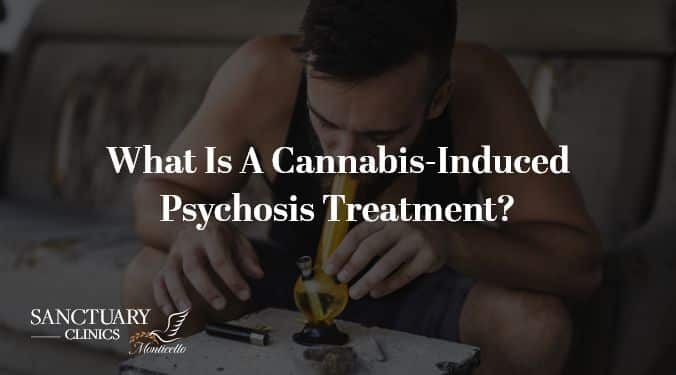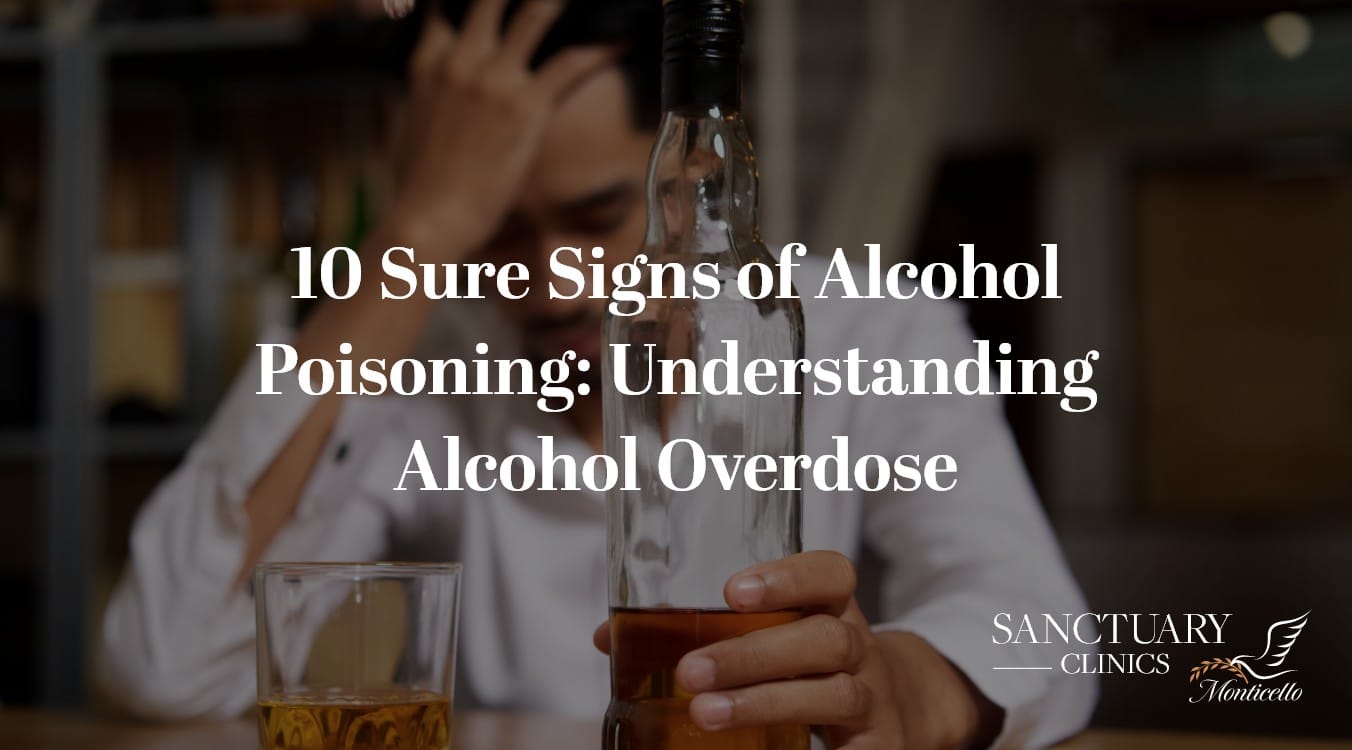Cannabis-induced treatment is a form of treatment that helps to reduce psychosis triggered by cannabis. A thorough medical assessment is essential to determine the extent of psychosis. This is also to rule out any other potential causes or underlying conditions. If the individual is still actively using cannabis, discontinuing its use is typically the first step. This may involve a gradual tapering off or complete cessation, depending on the severity of the symptoms and medical advice.
In this article, we will discuss what is cannabis-induced psychosis, its types, symptoms, and risk factors.
What is Cannabis-induced psychosis?
Cannabis-induced psychosis is a type of psychosis that has been triggered by cannabis. Psychosis encompasses a range of symptoms commonly associated with severe mental illnesses. Certain psychoactive substances, and various drugs, can also induce a type of psychosis. Individuals with pre-existing mental health conditions are more susceptible to experiencing psychosis. The symptoms of psychosis involve a detachment from reality.
While most of the effects of marijuana are temporary, some can persist in the long term. However, for a specific subgroup of cannabis users, the outcome is different from what is commonly believed. These individuals are susceptible to a mental health condition called cannabis-induced psychosis. It can result in a distressing and severe detachment from reality.
While cannabis is not native to America, its usage has rapidly spread among many households in the United States over the past five decades. As per the National Survey on Drug Use and Health in 2012, 7.3% of Americans who are aged 12 or older reported using some type of cannabis in the previous 30 days. These figures are remarkable in comparison to the usage rates of other illegal substances. Moreover, there is an increasing number of attempts for the legalization of cannabis across the nation. Therefore, it is likely that these numbers will continue to rise. This might lead to more cannabis use disorder in the nation.
Are there treatment centers for Cannabis-induced psychosis?
Yes, there are treatment centers for Cannabis-induced psychosis. Depending on your location and convenience, you may choose a treatment center that is best for you. Choose a treatment center that prioritizes evidence-based treatments and long-term recovery. Look for centers that have truly individualized care and will help the patient throughout the recovery process.
Get Help Today.
We are here to help you through every aspect of recovery.
Let us call you to learn more about our treatment options.
We are here to help you through every aspect of recovery. Let us call you to learn more about our treatment options.
What are the types of Cannabis-induced psychosis treatments?
There are different types of Cannabis-induced psychosis treatments. For individuals who experience cannabis-induced psychosis, the recovery period is typically short. But it is important to address underlying issues. The immediate treatment involves discontinuing the use of the drug causing the psychosis. A supervised detoxification process is often necessary, preferably in an intensive treatment setting. Ongoing treatment is recommended. This is because there may be underlying concerns that need attention. Treatment approaches are tailored to the individual. It often involves treatment with personalized behavioral therapies. Depending on the patient, prescription medications may be utilized. Apart from that, complementary therapies may also be used. Some examples are group support, exercise, and nutrition. Some creative forms of therapies are also used.
What are the Cannabis psychosis risk factors?
There are several risk factors associated with cannabis-induced psychosis. These factors can increase the likelihood of developing psychosis. Some of the key risk factors include:
- Early and Heavy Cannabis Use: Initiating cannabis use at a young age can lead to the development of psychosis. Using it frequently or in high doses can elevate the risk of cannabis-induced psychosis. It leads to earlier onset.
- Genetic Predisposition: Having a family history of mental health conditions can be a risk factor. Especially psychotic disorders like schizophrenia, increases the susceptibility.
- Personal or Family History of Mental Illness: Individuals with pre-existing mental health conditions are more at risk. They are at a higher risk of experiencing cannabis-induced psychosis.
- THC Potency: Cannabis strains with higher levels of THC can cause Psychosis. It is the primary psychoactive compound in marijuana. It is more likely to trigger psychosis symptoms compared to strains with lower THC content.
- Personal Vulnerability: Certain individual characteristics can also be a risk factor. For instance, sensitivity to the effects of THC, or personality traits. Underlying psychological vulnerabilities can also contribute to the risk of cannabis-induced psychosis.
These risk factors increase the likelihood of Marijuana-Induced Psychosis. However, not everyone who meets these criteria will develop the condition. This means it is difficult to predict who is at risk of psychosis. There are also environmental factors at play. It is important to look out for the negative symptoms.
What are the symptoms of Cannabis induced psychosis?
There are a few symptoms of Cannabis-induced psychosis. The symptoms may be short-term at first. But, it can quickly become long-term with prolonged use of marijuana. The symptoms can be scary for the one with the psychiatric disorder and their loved ones.
- Hallucinations: Perception of sensory experiences that are not based in reality. The affected can have both auditory hallucinations and visual hallucinations. This means they will hear and see things that are not there. They lose touch with reality. This is a very common symptom.
- Delusions: Holding false beliefs or ideas that are not based on reality. This is yet another primary symptom. These beliefs can be grandiose or bizarre in nature.
- Disorganized Thinking: Difficulty organizing thoughts or expressing ideas coherently. Speech may be garbled.
- Disturbed Perception: Altered perception of reality. The affected will have distortions in the perception of time, space, and senses.
- Paranoia: Feeling suspicious, persecuted, or excessively fearful. Individuals may believe they are being watched, followed, or targeted by others.
- Anxiety or Agitation: Increased restlessness, nervousness, or feelings of unease.
- Impaired Memory and Concentration: Difficulties with memory recall, attention span, and concentration.
- Social Withdrawal: Avoidance of social interactions or isolating oneself from others. They will become isolated and refuse to talk or leave their room. The patient may also exhibit some depressive symptoms.
Other than psychosis, cannabis can also cause other mental health problems. Some examples include a depressive disorder or anxiety disorder. It is important to look out for the psychiatric symptoms. This is so that the psychiatric condition can be diagnosed early.
There are many negative effects of cannabis. Therefore, it is best to not indulge in it, even for medical purposes. Regardless of the form of cannabis, you never know what it could lead to. Acute Psychosis can be a scary mental disorder to navigate. You should not be taking marijuana, especially if you have pre-existing mental conditions. The acute symptoms of THC psychosis can be overwhelming and frightening. To not face the adverse effects, avoiding marijuana altogether is the best option.
Get Help Today.
We are here to help you through every aspect of recovery.
Let us call you to learn more about our treatment options.
We are here to help you through every aspect of recovery. Let us call you to learn more about our treatment options.
What are the treatment options for Marijuana Psychosis?
There are a few treatment options for Marijuana Psychosis.
Early intervention treatment
Early intervention treatment is the prompt intervention in the early stages of psychosis. The goal of early intervention is to address the symptoms and underlying issues as soon as possible. This is in order to prevent further deterioration and promote better long-term outcomes. The first step in treatment is discontinuing the use of recreational cannabis, as it is the primary cause of psychosis. This may involve a period of detoxification, which is best done under medical supervision.
Mental health treatment
Mental health treatment encompasses a range of interventions and approaches. It is aimed at addressing and managing mental health conditions and promoting overall well-being. To better the mental health condition of a patient, various psychotherapies are used. Psychotherapy aims to identify maladaptive thoughts and develop coping skills and resilience.
Therapy for psychosis
There are various types of therapy for psychosis. Firstly, there is psychotherapy. Some examples of psychotherapy are cognitive-behavioral therapy (CBT), and dialectical behavior therapy (DBT). There is also supportive counseling. Counseling sessions provide a safe and non-judgmental space for individuals. This is so that they can express their emotions and discuss concerns. They can also receive guidance and support. It can help individuals develop insights and navigate challenges. Lastly, there is group therapy. Group therapy involves participating in therapy sessions. The group consists of individuals facing similar mental health challenges. It provides a supportive environment. This is so that they can share experiences and learn from others.
Pharmacological Treatment
Pharmacological treatment or medication may also be used for psychosis. Medications can help alleviate symptoms, and stabilize mood. It can also address underlying chemical imbalances in the brain.
Depending on the condition of the patient, the treatment of cannabis Psychosis may be assigned.
Cannabis-induced psychosis treatment FAQs
Who is at risk for drug-induced psychosis?
Certain people may be more at risk for drug-induced psychosis. Individuals with mental health disorder history are more vulnerable to Cannabis-Induced Psychotic Disorder. For instance, an individual with bipolar disorder or substance use disorder is more at risk. The use of substances can also lead to Substance-Induced Psychotic Disorder. Examples of the substances are hallucinogens, stimulants, and synthetic cannabinoids. However, it is not always easy to understand who is at risk for psychosis. The onset of psychosis is often difficult to assess.
Can Cannabis affect the neurotransmitters?
Yes, cannabis can affect the neurotransmitters. When taken frequently, cannabis can largely affect the neurotransmitters in our brains. Some of the neurotransmitters it may affect are dopamine and serotonin. Other than that, it may also affect GABA and norepinephrine. This may lead to mental disorders.
Can Cannabis affect neural pathways?
Yes, cannabis can affect neural pathways. The active compounds in medical cannabis interact with specific receptors in the brain. These receptors are part of the endocannabinoid system. This system plays a role in regulating various physiological processes. It has a negative effect on the endocannabinoid system or our body. When using cannabis, the endocannabinoid system may get disrupted. Hence, some of our bodily functions may become unregulated. This may also lead to some mental health symptoms. Hence, it is best to avoid illicit drugs.
Can cannabis induce a psychotic disorder?
Yes. Cannabis can induce a psychotic disorder. Cannabis contains a substance called tetrahydrocannabinol (THC). It has the ability to affect the brain when it enters the bloodstream. This disruption in normal brain function leads to various intoxicating effects. THC is the primary psychoactive compound in cannabis. It is mostly responsible for inducing Cannabis Induced Psychosis. It interferes with the ability of the brain to differentiate between important and irrelevant stimuli.
Can cannabis induce a psychotic episode?
Yes, cannabis can induce a psychotic episode. Using cannabis one or two times may not yield such results. However, when it is used frequently, it can be damaging to the chemistry of your brain. Consequently, psychotic episodes can happen. In some cases, simply discontinuing recreational marijuana may do the trick. However, if the symptoms set in and it becomes serious, professional help may be needed. An episode of psychosis can be scary for the loved ones of the patient.
Get Help Today.
We are here to help you through every aspect of recovery.
Let us call you to learn more about our treatment options.
We are here to help you through every aspect of recovery. Let us call you to learn more about our treatment options.









